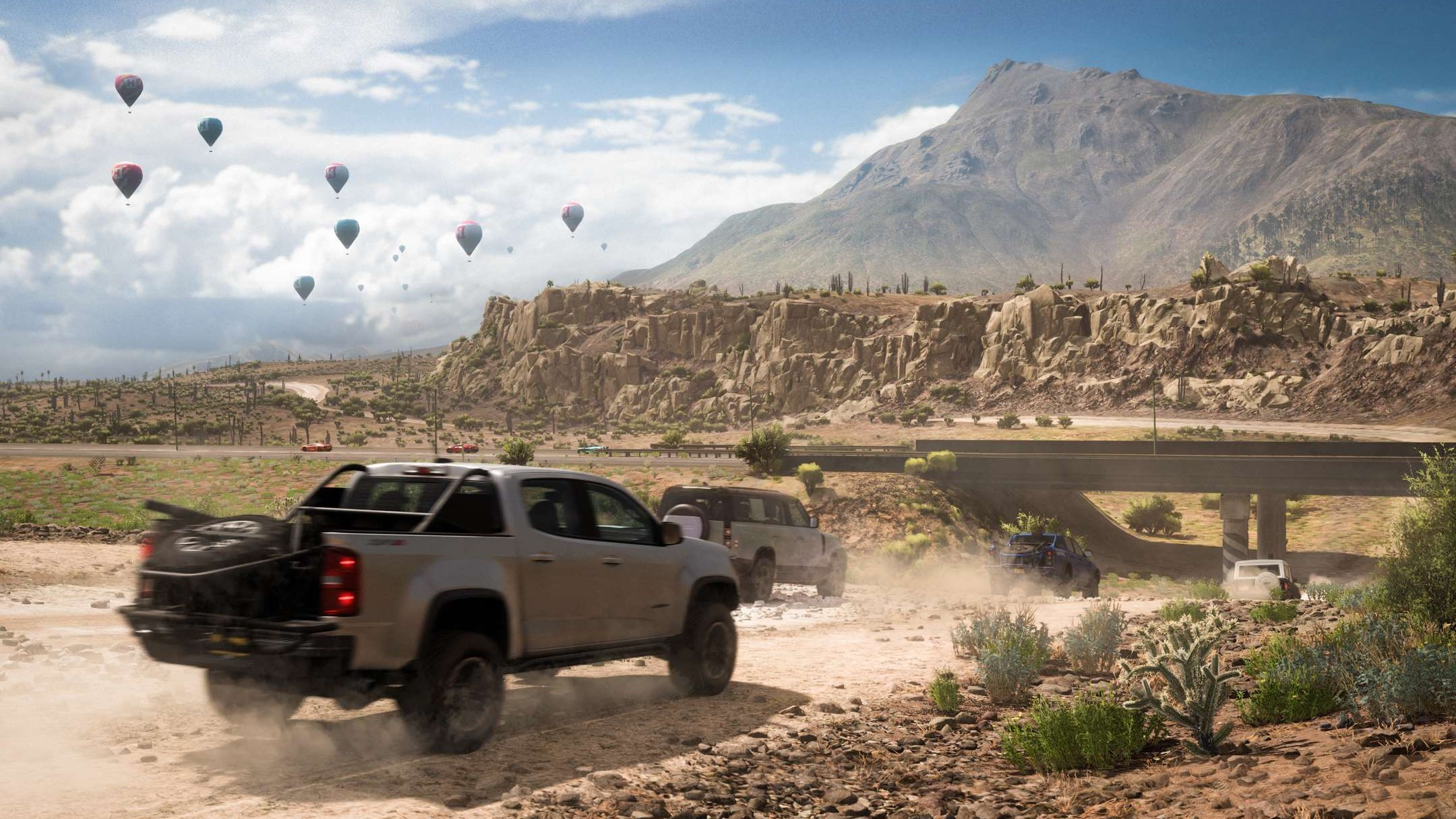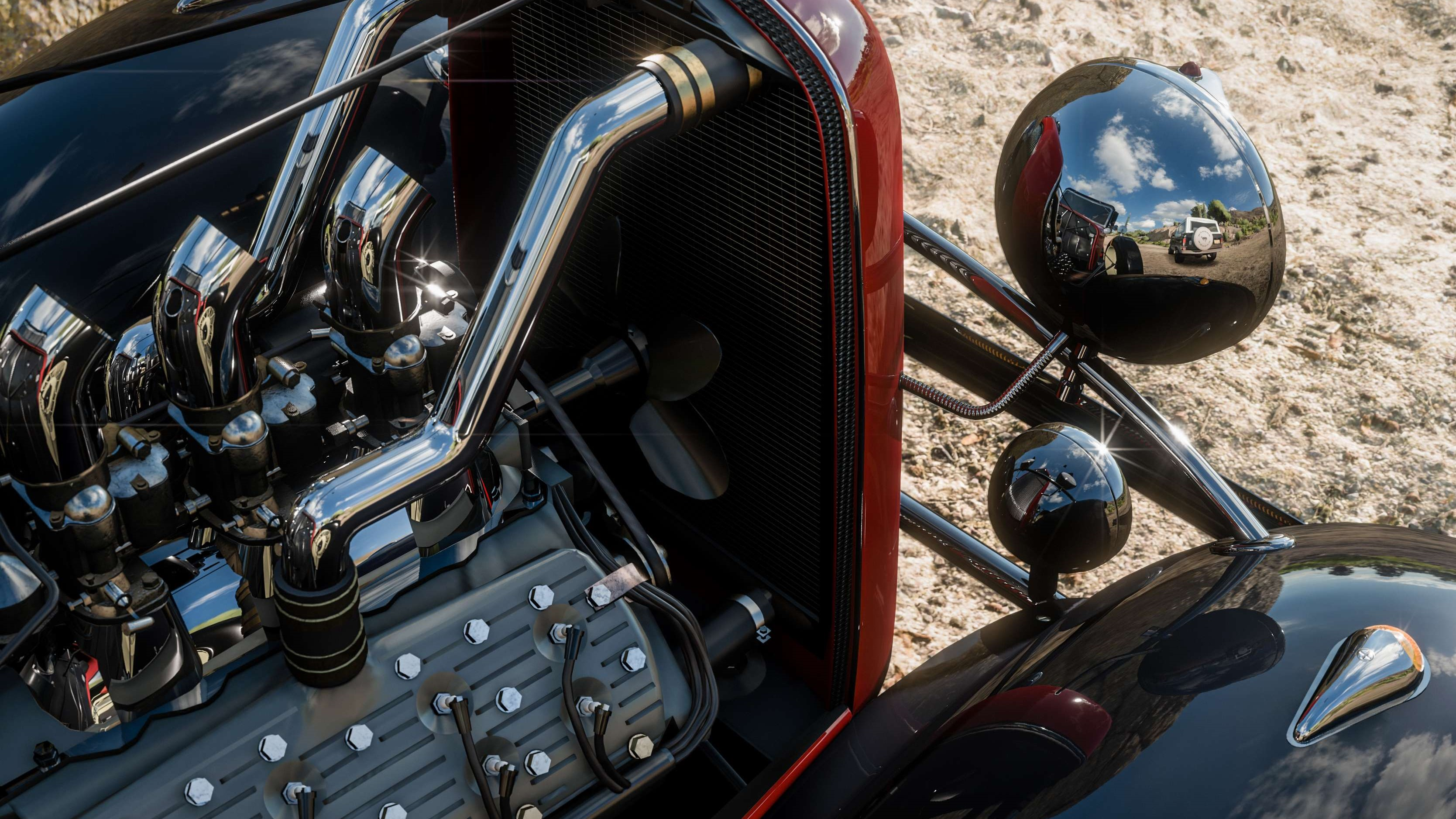Here's Why Forza Horizon 5 Sounds So Good, Straight From One Of Its Audio Wizards
Recording cars for FH5 is more involved than sticking a mic up to a tailpipe, as its lead audio designer will tell you.
Besides the sprawling new map set in Mexico and additional cars, aftermarket parts and events, Forza Horizon 5 is getting another upgrade in one oft-overlooked area: Car audio. Last week, Fraser Strachan, Lead Audio Designer at Playground Games, revealed everything the studio's been doing to ensure vehicles in the next Horizon installment sound richer and more lifelike than ever before. To my ears, as well as those of many fans, they've made quite a stride.
Punching up engine noises in a game with the vast library of cars that Forza has takes a wealth of time, planning and technical creativity. We were hungry to know more, so we reached out to Playground Games, who were kind enough to put us in touch with Fraser himself. If you're a nerd curious about how racing games are made and especially how audio from vehicles is recorded and implemented, I think you're going to enjoy this little peek behind the curtain.
Adam Ismail: Fraser, you said during the stream last week that it took two to three years to truly rebuild the game's audio from the ground up. Was most of the time spent just going out and recording new audio for every car? A large portion of cars? And what does the team do if it can't get a particular car?
Fraser Strachan: As an Audio Team we have a lot of different areas to design and create sound for, such as music, voice-over, cinematics, car foley and world ambience. Car audio is such an important area for us, and we knew that in order to achieve our ambitious goals on this project, we'd need to dedicate significant time to it. In fact, we've been able to source more cars than we ever have done before on a single project. There are always unique challenges whilst sourcing cars such as how rare a car is, where the cars are located, and of course availability. In these cases, there are usually similar cars with similar engines that we can locate that work perfectly. We will ensure we record the exact cars when it's something iconic though. With cars especially, the sound can be so individual that fans will know the make and manufacturer just by hearing them.
We have dedicated ourselves to researching, sourcing, recording, processing and mixing all of this new car content and we are so excited for everyone to finally hear the results!
AI: How do you source cars to record? How do you find owners, and have any come to the team saying, "want to record my car?"
FS: It's really a mixture of places depending on the vehicle. For instance, if we're looking to record an old classic car, we may approach private collectors or museums who would be willing to help out. In other cases, such as modified sports cars, we may reach out to specialist tuners who maybe deal in a certain manufacturer. There is a lot of networking involved in the process and sometimes we may end up recording cars that we never planned to, especially when we get to speaking to owners and their friends. Another avenue we might take is to contact a manufacturer directly. Sometimes the best way to find a car that sounds best and represents the true sound of the vehicle is to work with the people who made them.
AI: You explained the new granular synthesis technique to a certain degree in the stream, but I was wondering if we could get a little more clarity as to how it differs from the old looping technique?
FS: Games have used a variety of techniques to play-back car audio for many years, and how you play them back usually depends on the style of game that you are making. There's not necessarily a wrong way to do it, but for Forza Horizon games, we need absolute accuracy and responsiveness to react to a variety of scenarios, be it skilled drifting or bouncing across the countryside. We used to use a technique that required us to create loops from car recordings and blend them together using audio middleware. This technique had many limitations for us including lack of responsiveness, slow implementation times, lower fidelity audio with the older dyno recording methods, and lack of ability to easily add our own features to the tool. The Granular Synthesis tool eradicates all these issues and gives us the freedom to pioneer new technological advancements ourselves.
AI: Audible upgrades and the ability to hear the way they transform the engine note as you mod the car is such a cool idea, and I have a feeling fans are going to love it. How is that being achieved — are these like filters being applied to existing sound files?
FS: We experimented a lot with this system during early development, specifically with filters and effects on existing sounds. In all test cases, we found that using effects didn't do justice to the real-life sound when you upgrade a part. When you upgrade an exhaust on a car, the sound is changed by so many factors such as width, length, resonance, materials used, etc. An equalizer just doesn't go far enough to replicate the change in timbre that can be heard. With that in mind, we developed our new Modular System that allows us to mix and match hundreds of real recordings of upgrade parts. As soon as we used authentic recordings, the difference was incredible. This changed our recording plans a lot! We drastically increased the number of cars we aimed to source in order to record lots of different modification stages of similar vehicles to accommodate this system. The end result is a system which feels really satisfying and meaningful, every part comes with its own character.
AI: As someone who's been following cars and gaming my whole life, I find it funny how you'll always, without fail, hear someone say "car X doesn't sound anything like that!" about the way their favorite car is represented in a particular title. Why do you think car audio is so difficult to get right in games, and so varied in how people receive it?
Also, are there any cars or engine types that, for whatever reason or quirk, are more difficult to render faithfully in game than others?
FS: Car enthusiasts not only love cars, but they also love the sound of cars. You can't talk about your favorite vehicle without describing what noise it makes and how that makes you feel. We often link sound to emotion and that's why I think it sticks with people in a way that other elements don't necessarily do. In particular, I think that's why everyone has their own attachment to how cars should sound. In addition to this, racing games have been around for decades now and there are a lot of different styles, techniques, and aesthetics which can appeal to some and not others. For many people, racing games might have been their first opportunity to drive an incredible hypercar and the sound of that will have stuck with them. There is such a great variety of choice, and naturally that will invite healthy debate.
As for implementing car audio in games, I think getting it right is a matter of time, effort, technology, and experience. We've been working on our Granular Synthesis tooling since Forza Horizon 3 so it's taken a long time to develop the technology to where it is now. During that time, we've accrued an incredible amount of expertise within the team that has carried across from each game. In order to replicate the fine details of each car, we ourselves need to understand how every part of a car works.

AI: What was it that made FH5 the right opportunity for this investment in the audio side of things? Is it something the team has wanted to tackle for a long time?
FS: Right back at the start of development of Forza Horizon 5, we knew that making a generational leap and advancing our tools and tech to be at the cutting edge would require more time. As an Audio team, we also knew it would take a long time to source all of the car recordings that we've been wanting for a long time now. It has been a brilliant development experience on this game being able to revolutionize all of the tools that we've been using to achieve the goals that we continuously strive for.
AI: Finally, a bit of a weird one. When I wrote the earlier story on this, a bunch of folks in the comments said what y'all are doing might just be the answer to preserving those classic internal combustion sounds that we'll lose as cars go electric. Any thoughts on that?
FS: It's a really interesting point and one that we certainly started to think about ourselves. I think that speaks to why so many people love jumping in and collecting as many cars as they can in Forza Horizon games. Games are the best way for everyone to enjoy driving a variety of amazing cars they might never be able to experience in real life, from rare classics to supercars and modern electrics. Providing an exhilarating sound experience of what it's like to drive one of these amazing cars makes us very happy!
